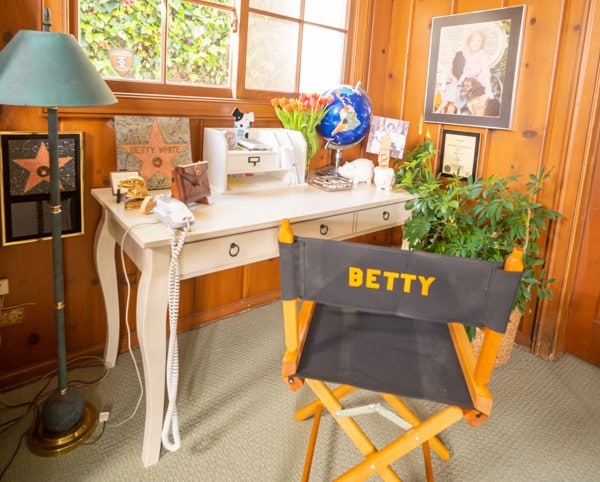It’s almost June, so it’s time to survey elder law news and commentary and share interesting developments. For the May review, we have news about Arizona’s elders, taxes, and Betty White’s estate sale:
Challenges of Aging
Arizona’s Auditor General issued a scathing report that suggests the Department of Health Services is doing little to protect Arizona seniors. In 2019, auditors made five recommendations, and DHS has implemented none. Among findings, “the agency inappropriately changed virtually all of its open high-priority complaints to lower priorities” That extended the time to respond from 10 days to a year. And then, cases were closed with no inquiry at all.
May is “Older Americans Month,” and the theme this year: Aging in Place. According to AARP, 77% of adults 50 and older want to remain in their homes for the long-term, a number that has been consistent for more than a decade. Does that include you or someone you care about? Here are some key questions to address about the living space.
Dementia research shows that a diagnosis is costly if it follows a crisis. Early diagnosis helps. As a result, a researcher concludes, “More attention to and support for patients with cognitive decline earlier on may have health benefits and spending implications.”
Say you get a dementia diagnosis – what then? Some practical advice: understand it, ask questions, seek support.
Meanwhile, studies show blueberries, cranberries, and lifestyle choices (three or maybe seven) may help avoid dementia.
And that new Alzheimer’s drug everyone was excited about? Barely works.
May’s Tax Developments
It may be only natural that, following tax season, our May review found fretting over taxes and the economy, but there are always planning opportunities.
First, the planning opportunity. If your estate might be subject to estate tax, the stock market’s dip into bear territory can have an upside. It’s good to gift assets when they’re down. Here’s why.
As for the fretting, proposed tax regulations target planning techniques that may be considered abusive. Some gifting techniques might not work, so if you engaged in sophisticated estate-tax avoidance strategies, take a look and consult with your advisers.
A couple of creative thinkers have what they say is a better way to tax the rich at death than Biden’s plan. For the very rich (over $50 million), tax unrealized gains at death at ordinary income rates, but keep lower rates for lifetime gifts.
Though taxing the rich is popular among voters, Congress is not likely to act. Why? According to this piece: “Wealthy people are both economically more conservative than regular Americans and hold more sway in the political system.”
Can you believe seventeen states still levy an estate and/or inheritance tax? (Arizona has neither.) Many of them are making adjustments. Here’s where not to die in 2022 if you are trying to avoid tax.
Estate tax is interesting to think about and plan to avoid, but what actually needs to be done? Here are some specifics about dealing with estate tax when a spouse has died.
Here’s a tax dispute resolved after more than two decades: An art collector’s estate has settled with the IRS and agreed to pay more than $17 million (down from $200 million the IRS once wanted).
Review of News You Can Use
You should know . . . CDs don’t escape being counted for estate tax purposes. But they can avoid probate.
You might want to understand . . . the differences between gifting during life vs. at death . . . what trusts do (and don’t do) . . . and what TOD means.
Or consider planning tips for creative people, business owners, and the easily distracted.
And the benefits of using disclaimers to add flexibility to estate plans, or to just get rid of an asset you’re entitled to inherit but don’t want.
May’s Law & Order News
Federal prosecutors in Vermont accuse 28-year-old Nathan Carman of luring his mother on a fishing trip, killing her and sinking their boat to inherit his family’s estate. As part of his plan, prosecutors say, he shot and killed his grandfather, too. He says he’s not guilty.
A jury found a former MIT professor guilty of forgery and other charges. John Donovan, 80, tried to swindle millions of dollars from his dead son’s estate. His son, also named John, died of cancer at age 43 in 2015 and didn’t want his dad to have anything to do with his estate. John Sr. forged will codicils, deeds, land transfers, mortgages and releases of judgments against him. If successful, he would have gained $5 million worth of land.
Estates of the Rich & Famous
Administrators of Marilyn Monroe’s estate know all publicity is good publicity. They’re giving a big thumbs up to Kim Kardashian wearing Monroe’s famous “Happy Birthday, Mr. President” dress to the Met gala. Though critics were “furious.”
This could be interesting: The estate Frida Kahlo has entered into a deal for a TV series based on the iconic artist’s life. Says her grandniece: “The series seeks to portray Frida as she has never been seen before. The goal is to present a unique perspective based on what her family knows about her and show how she really lived her life.”
There’s a major auction of actress Betty White’s estate coming up in September. The three-day event will feature more than 1,500 lots. It will include awards, scripts, wardrobe, memorabilia from her TV shows and films, plus furnishings, art, jewelry, and personal items from her California residences.
And last but not least for May’s review: Here are two more people who are not super-famous but should be: Harriet and J. Locke Macomber left $45 million to eight Des Moines charities. Each describes the impact of the “money from heaven.”



